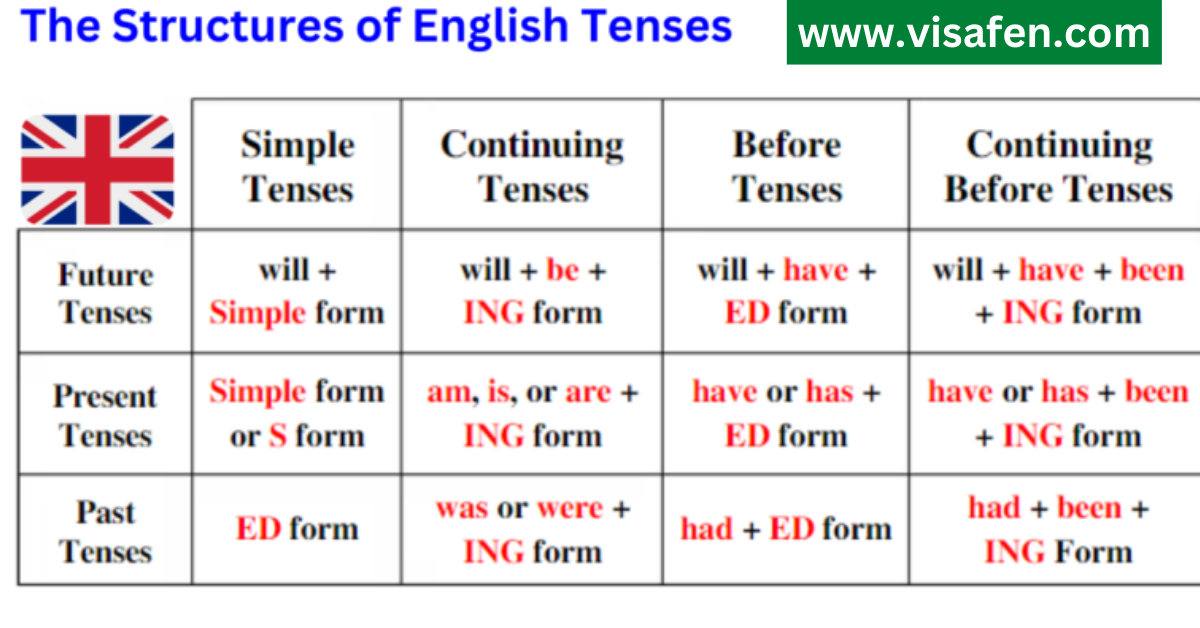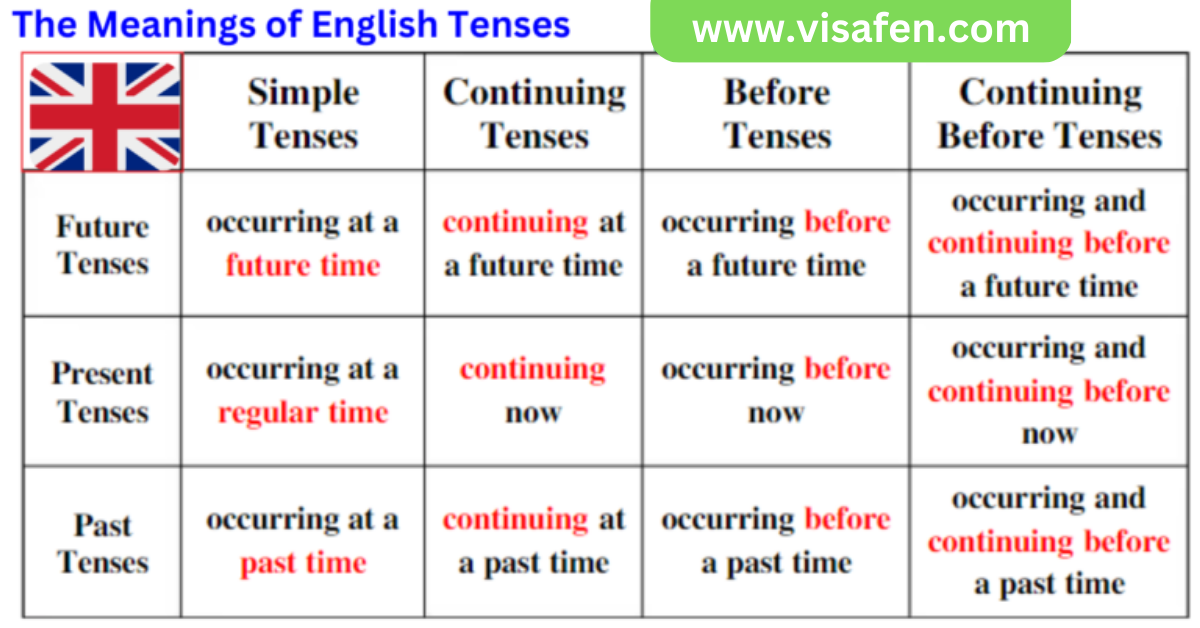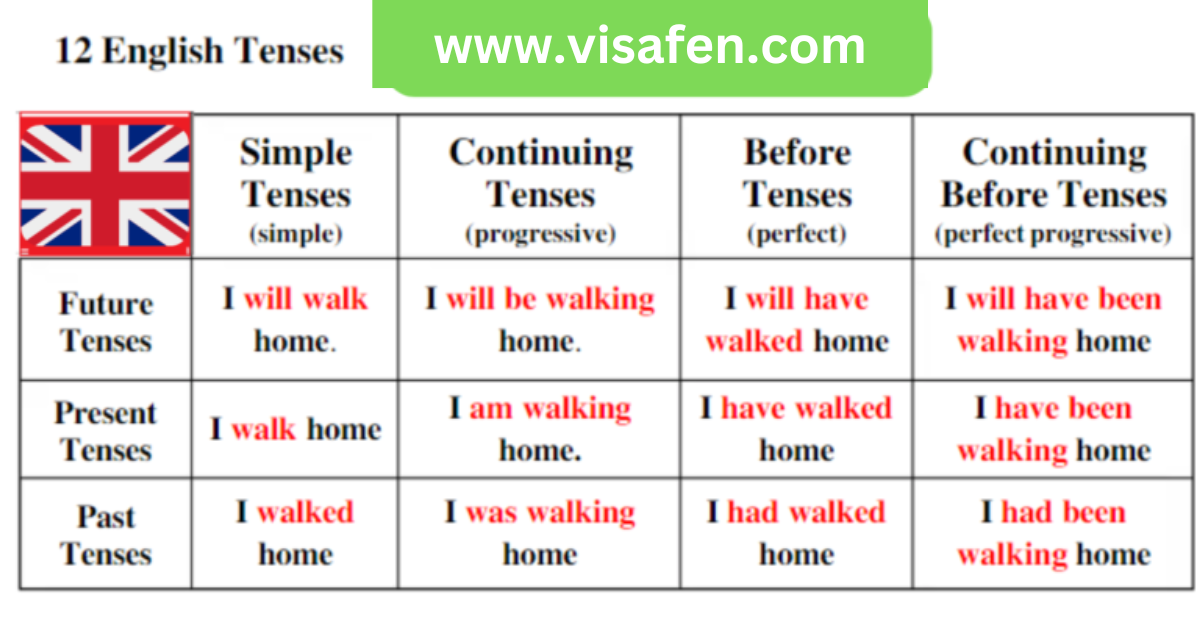Present Perfect Tense
The English Tense System
The links below are to lessons for each of the 12 basic tenses.
In each lesson we look at two aspects of the tense:
- Structure: How do we make the tense?
- Use: When and why do we use the tense?
Some lessons look at additional aspects, and most of them finish with a quiz to check your understanding.
Present Perfect Tense
Present Perfect Continuous Tense
Future Perfect Continuous Tense
Tenses
We use different tenses to describe the time that the verb refers to.



Generally, the present perfect tense talks about actions that happened at an unspecified past time and uncompleted actions or events in the present time. It can be tricky because it refers to present time in some contexts, and past time in others. Unlike the simple past tense, the present perfect tense links past to present, often focusing on the effect a past action has on the present moment.
We form the Present Perfect Tense by using has or have, followed by the main verb in past participle form.
| Subject | Has or Have | Verb
(past participle) |
Rest of Sentence |
| I/you/we/they | have | eaten | dinner already. |
| he/she/it/Jane | has | eaten | dinner already. |
The Present Perfect in the Present Time
Ongoing Actions
We use the present perfect to talk about an action that was started in the past, but is ongoing or incomplete at the time of writing or speaking. We use for to indicate a duration of the action, and since to indicate a specific time the action started.
- I’ve known Janet since we were children.
- They have lived in New York for five years.
- Uncompleted Actions that you Expect will Change
We can use words like yet or still to indicate an expectation that the action will happen, should have happened, is surprising, or will change.
- Jeremy still has not finished the homework assignment.
- I haven’t gone to Japan yet, but I plan to go.
The Present Perfect in the Past Time
Life Experience
You use this present perfect tense to talk about past events that happened at an unspecified time in the past. This is kind of like saying “I have the experience of…” You can use it with the words not and never to indicate things you haven’t done.
- I have been to Japan many times.
- The runner has never lost a race.
- Amanda has studied three foreign languages.
- I’ve never taken a dance class.
Note: Although you can use the present perfect tense to state that something has happened at an unspecified time, once you want to add precise details to the story, use the simple past or past continuous tenses:
I’ve been to Spain twice. The first time, I went with my parents when I was six years old. I went back after college. While I was traveling in Andalusia, I found a job teaching English to children and stayed for several months.
You can also use the present perfect to talk about multiple actions at happened at different times in the past.
- The United States has gone to war in the Middle East four times.
- She has consulted many doctors about her illness.
- I have traveled to Mexico three times.
Accomplishments
- The company has earned over three million dollars.
- The United States has won many gold medals in the Olympics.
- Scientists have mapped the human genome.
With an Unfinished Time Word
“This year,” “in the last year,” “this week,” “this month,” “today,” and “so far” are examples of time periods that are still ongoing, so you use the present perfect tense.
- I have planted four trees this year.
- Roger Federer has won the US Open four times so far.
- I’ve gone to my aerobics class twice this week.
Negative Statements
To make the negative with the present perfect tense, just add “not” after “has” or “have”:
- I have not read that book.
- She has not forgotten your birthday.
- They have not arrived yet.
Question Forms
Information Questions about the Subject
To make a question about the subject of a sentence, use a question word as the subject. the form is: question word + “have/has” + main verb (past participle) + rest of sentence:
- ??? has traveled to Spain. –>
- Who has traveled to Spain?
- ??? people have written books about space travel. –>
- How many people have written books about space travel?
- ???’s teacher has dyed her hair blue. –>
- Whose teacher has dyed her hair blue?
Questions about the Verb or Words after the Verb
To make a yes/no question about the verb or words after the verb with the present perfect tense, put “has “or “have” before the subject:
- Have you been to a doctor?
- Have I lost my glasses again?
- Has she told you the news yet?
To make an open-ended question with the present perfect tense, put a question word (who, what, where, when, why, how) before the “has “or “have” and subject:
- Where have you been?
- Why has she left already?
- Where have you put your phone?